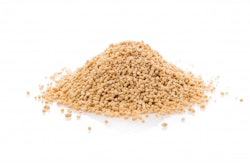
Argentina Wheat Exports to Reach Record
Argentine wheat exports to Asia are poised to climb to a record high as a drought curbs Australian production and Black Sea inventories tighten.
Indonesia, Asia's biggest importer, along with Vietnam, Thailand and the Philippines are estimated to import 1.2 million tonnes of Argentine wheat.
2019 was a record year for Argentine wheat exports.
Argentina's Buenos Aires grains exchange raised its wheat harvest estimate for the 2019/20 season to a bumper 18.8 MMT.
Argentina became a key wheat exporter to Asia in early 2019 as a third year of drought curbed wheat exports from traditional supplier Australia.
In December, Argentina increased export taxes on wheat exports to 12%.
FBN’s Take On What It Means: At FBN, we believe that the drought in Australia is shifting the global export grids which can be a positive for the U.S. farmer. Despite the fact that U.S. HRW and Argentine wheat are competitors in the global export market, we believe that the 12% export tax on Argentine wheat has the ability to help shift some export business to the U.S. which can be positive for U.S. HRW prices.
Brazil’s Soybean Harvest Off to Slow Start
According to Brazilian agri-consultant, AgRual, Brazil's soybean farmers have harvested 1.8% of the soybean acres this season and is behind pace.
At this point in 2019, Brazilian farmers had harvested 6.1% of soybeans.
Soy planting and harvesting delays can delay Brazil’s 2nd corn crop which could cause farmers to plant corn later than last year.
If planting delays persist, Brazilian farmers may increase acres of sorghum, sunflower or pulses.
Brazil has two corn harvests.
More than 70% of Brazil's total corn is the 2nd corn crop, known as the safrinha and it is primarily used for export.
Brazil’s first-crop corn is consumed domestically.
Brazil is widely expected to produce a record soybean crop this year.
FBN’s Take On What It Mean: While the recent rains have helped support the growth and development of Brazil’s soybean crop, FBN believes that it is too early to tell how a slow start to the soybean harvest can impact corn production. We believe that the global demand for Brazilian corn should remain robust enough to incentivize the Brazilian farmer to plant corn which can be a neutral to negative event for the US farmer.
The risk of trading futures, hedging, and speculating can be substantial. FBN BR LLC (NFA ID: 0508695)










